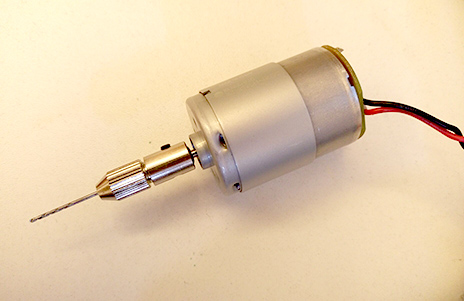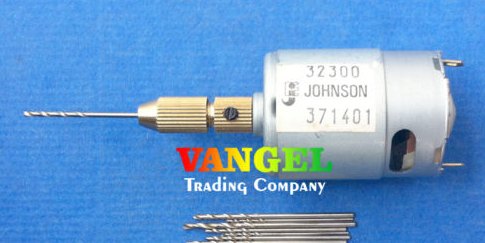I'm trying to use this super-cheap PCB drill that I bought recently, but it's too weak for human convenience (takes about 10 seconds to get through standard 1.6mm FR4).
The drill uses a small DC motor (40 mm length, runs off12V, RPM unknown, my PSU shows < 100 mA current draw), which is clearly of concern.
Luckily, it's very simple to detach the drillbit collet from the original motor shaft, by simply releasing the black set screw in the photo.
So I wanted to substitute a more powerful motor. I'm supposing I can just use any standard DC motor to replace the original one.
What motor specs should I look for, if I want to achieve more powerful drilling? Also, should I ideally go for non-geared (higher RPM) or geared (higher torque, but at the cost of rotation speed)?


